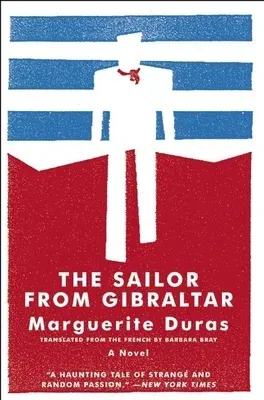A haunting tale of strange and random passion.--New York Times
Disaffected, bored with his career at the French Colonial Ministry
(where he has copied out birth and death certificates for eight years),
and disgusted by a mistress whose vapid optimism arouses his most
violent misogyny, the narrator of The Sailor from Gibraltar finds
himself at the point of complete breakdown while vacationing in
Florence. After leaving his mistress and the Ministry behind forever, he
joins the crew of The Gibraltar, a yacht captained by Anna, a beautiful
American in perpetual search of her sometime lover, a young man known
only as the Sailor from Gibraltar.
First published in 1952, this early novel of Duras's--which was made
into a film in 1967--shows those preoccupations which have so deeply
concerned her in her later novels and film scripts: loneliness, boredom,
the inevitability and intangibility of love. The lambent poetry of the
book, and the limning of a woman's mind, her love and sense of the
inevitability of that love are singularly Marguerite Duras.
Marguerite Duras wrote dozens of plays, film scripts, and novels,
including The Ravishing of Lol Stein, The Sea Wall, and Hiroshima,
Mon Amour. She's most well known for The Lover which received the
Goncourt prize in 1984 and was made into a film in 1992.
Barbara Bray translated several works by Marguerite Duras, including
The Malady of Death, The Lover, and The War. In addition, she has
translated Jean Genet, Ismail Kadare, and Tahar Ben Jelloun, and has
received the French-American Foundation Translation Prize.

